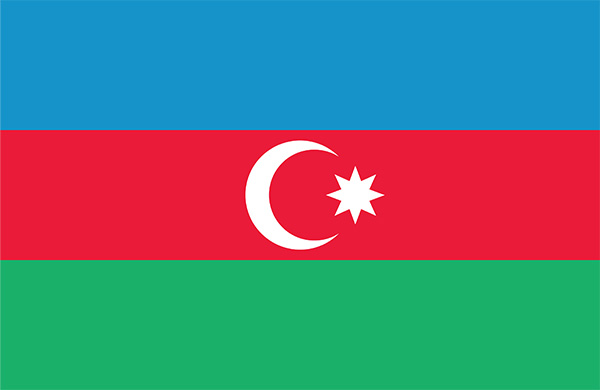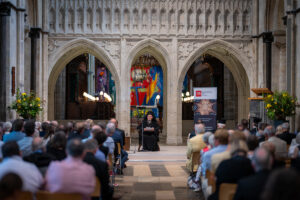Many observers have seen the recent conflicts between Azerbaijan and Armenia as a revival of the dark days of the Armenian Genocide of the early twentieth century, when the Ottoman government pursued the systematic extermination of 1.5 million Armenians, mostly Ottoman citizens within the Ottoman Empire and its successor state, the Republic of Turkey, as well as over 1,000,000 Greek Orthodox Christians. The similarity between the Armenian Genocide and recent events was also evidenced in Azerbaijan’s targeting of churches.
For more ChristianPersecution.com coverage of the persecution of Christians in Azerbaijan and the areas it controls, see here.
“Christians Under Siege in Artsakh,” International Christian Concern, February 24, 2023:
02/24/2023 Artsakh (International Christian Concern) – One hundred mothers wrapped their newborns in their arms at the Holy Mother of God Cathedral in Stepanakert, Nagorno-Karabakh (Armenian: Artsakh). They’re taking part in the first ceremony of their lives. But these babies have a unique trait in common: they are united by an extraordinary circumstance: they have been under siege from the moment they were born.
“When Christ was 40 days old, he was brought to the temple. And, according to the order, when the child is 40 days old, the parents are obliged to bring him to the church so that the little one receives a blessing,” said the leader of the Diocese Vrtanes Archbishop Abrahamyan, in his speech of blessing, handing over the newborns under siege in Artsakh gold pendant crosses donated by philanthropist and businessman Gagik Tsarukyan.
Lusine Dadayan, mother of Arpi—a newborn in the siege—has experienced three wars. She feels as if she has been living outside her comfort zone for a long time. She said that despite all the hardships her family and all citizens are going through, the important thing is the birth of a child.
“My daughter is a light in this darkness, and I believe with this light and the power of God, we will overcome this crisis, but I hope that after all these deprivations, my daughter and all other children will grow up in peace,” she said.
Cut Off from the World
For about 70 days, under the guise of an environmental action, Azerbaijan has closed the only road connecting Artsakh to Armenia and the rest of the world—the Lachin Corridor—and because of the physical barricade, 120,000 Christians in Artsakh (including 30,000 children, 20,000 older adults, and 9,000 disabled people) have been trapped.
People in Artsakh are cut off from hundreds of tons of basic food, medicine, and fuel every day, and as a result, the population faces malnutrition and frostbite. During the blockade, Azerbaijan disrupted gas and electricity supplies into Artsakh several times.
Since the start of the blockade, many governments and international organizations have condemned Azerbaijan’s actions and called for the lifting of the blockade.
In his Sunday sermon, Pope Francis addressed the situation in Artsakh for the “grave humanitarian situation in the Lachin Corridor.” Similarly, His Holiness Aram I, the Diaspora-based Catholicos of the Armenian Church, issued an appeal to the world in which he called attention to the genocidal risk threatening Armenians in Artsakh.
The Middle East Council of Churches issued statements condemning Azerbaijan’s blockade and inhuman acts toward the Artsakh people, violating international law.
Finding Light
During the blockade, spiritual and ritual ceremonies, liturgies, and prayers did not stop in the Artsakh Diocese.
On Jan. 5. the eve of Christmas, with the blessing of the diocesan priest, a united prayer was performed with the participation of students of the Sunday schools running in the Artsakh Diocese, and festive events and performances were organized with spiritual songs.
“Man shall not live by bread alone, but by every word that comes out of the mouth of God.” These are the words of Jesus to the people of Artsakh in response to the famine. During the Christmas Mass in the Mother Church of Stepanakert, Bishop Vrtanes Abrahamyan urged “not to regret the lack of food, but to be content with what we have.”
It is perhaps symbolic that during the Christmas celebration, it was impossible to find a candle in the shops to bring light home from Church. All candles were sold out on the first day during the power outage.
On the eve of Feb. 13, Armenians in Artsakh celebrate Trndez to mark the 40-day-old Christ being presented to the temple in Jerusalem. A ceremony of blessing the newlyweds was performed, and after the celebration, a fire was lit in the church yard as a symbol of the light of Christ.
It is the light of Christ that unites people, especially the youth.







